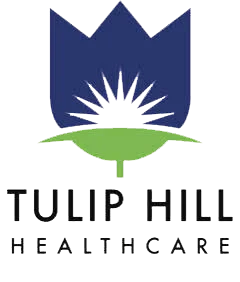Table of contents
Tennessee Holistic Therapy

| Medically Reviewed By: Board-Certified Psychiatrist and Addictionologist |

| Clinically Reviewed By: Board Certified Clinical Social Worker |
Did you know that your insurance plan may cover medical detox?
Complete a free, confidential Verification of Benefits to learn more about what resources may be available to you.
Supporting Families Through Recovery
Get Family Support Now
We understand addiction affects the whole family. Our comprehensive family program helps rebuild trust and restore relationships.
Weekly Family Therapy Sessions
Educational Workshops
Support Groups
Communication Skills Training
Recovery from addiction involves more than just stopping substance use, it requires healing the whole person: mind, body, and spirit. At Tulip Hill Healthcare, we recognize that true addiction recovery addresses not only the physical aspects of dependency but also the emotional, psychological, and spiritual dimensions that contribute to substance abuse. Our comprehensive holistic therapy programs complement traditional addiction treatment methods to provide a well-rounded approach that promotes lasting recovery and overall wellness.

What is Holistic Therapy for Addiction Treatment?
Holistic addiction therapies are non-medicinal treatment methods that aim to bring the mind, body and spirit into alignment to make a well-rounded recovery. Unlike traditional approaches that may focus primarily on the physical aspects of addiction, holistic therapy for addiction treatment recognizes that substance abuse affects every dimension of a person’s life, physical health, mental wellbeing, emotional stability, social relationships, and spiritual connection.
The fundamental principle underlying holistic addiction therapy is that true healing occurs when all aspects of a person are addressed simultaneously. This comprehensive approach acknowledges that addiction often stems from underlying trauma, unresolved emotional issues, spiritual disconnection, or imbalances in physical health. By treating these root causes alongside the addiction itself, holistic therapies for addiction recovery create a stronger foundation for long-term sobriety.
Holistic addiction therapy typically incorporates various alternative and complementary treatment modalities that work synergistically with evidence-based clinical interventions. These may include mindfulness practices, creative expression therapies, physical wellness activities, nutritional counseling, and spiritual exploration techniques. The goal is to help individuals develop a comprehensive toolkit of coping strategies and healing practices that support recovery from multiple angles.

The Mind-Body-Spirit Connection in Addiction Recovery
The interconnection between mind, body, and spirit forms the cornerstone of holistic addiction treatment. Research has consistently demonstrated that addiction affects brain chemistry, physical health, emotional regulation, and spiritual well-being in profound and interconnected ways. Traditional addiction treatment approaches often address these elements separately, but holistic therapy recognizes that healing must occur across all dimensions simultaneously for optimal outcomes.
The mind component of holistic therapy for drug addiction focuses on addressing psychological factors that contribute to substance abuse, including trauma, depression, anxiety, and negative thought patterns. Through practices like meditation, mindfulness, and cognitive reframing techniques, individuals learn to develop healthier mental habits and emotional regulation skills that support sustained recovery.
The body aspect of holistic alcohol addiction treatment recognizes that addiction takes a significant toll on physical health and that healing the body is essential for overall recovery. Physical wellness activities like yoga, exercise therapy, nutritional counseling, and massage therapy help restore physical health while also providing natural ways to manage stress and regulate emotions without substances.
The spirit dimension acknowledges that many individuals struggling with addiction experience a sense of disconnection from their values, purpose, and sense of meaning. Spiritual practices within holistic addiction therapy may include meditation, nature therapy, service work, or exploration of personal values and beliefs, helping individuals reconnect with their authentic selves and find deeper motivation for recovery.
Types of Holistic Therapies for Addiction Recovery

Mindfulness and Meditation Practices
Cognitive behavioral therapy pairs well with meditation and yoga sessions in teaching how to manage stress and handle discomfort. Mindfulness-based interventions have become increasingly recognized as powerful tools in addiction recovery, helping individuals develop greater awareness of their thoughts, emotions, and physical sensations without immediately reacting through substance use.
Various forms of meditation may be incorporated into treatment, including mindfulness meditation, loving-kindness meditation, body scan techniques, and walking meditation. These practices provide individuals with practical tools they can use throughout their recovery journey to manage stress, reduce anxiety, and maintain emotional balance.

Creative Expression Therapies
Art therapy, music therapy, and experiential therapies offer potent opportunities for self-expression and emotional healing during addiction treatment. These creative therapies provide alternative ways to express emotions, explore feelings, reduce stress, and increase motivation.
Art therapy allows individuals to express emotions and experiences that may be difficult to verbalize, providing a safe outlet for processing trauma, grief, anger, or other complex feelings that often contribute to substance abuse. Through various artistic mediums, individuals can explore their inner world and gain insights into their recovery journey.
Music therapy harnesses the therapeutic power of sound and rhythm to promote healing and emotional expression. Whether through listening to music, creating original compositions, or learning to play instruments, music therapy provides a powerful means of connecting with emotions and finding healthy ways to express feelings.
Dance and movement therapy recognizes that trauma and emotional pain are often stored in the body, and that physical movement can be a powerful tool for releasing these stored experiences while promoting overall wellness and self-expression.

Physical Wellness and Body-Based Therapies
With holistic approaches such as yoga, meditation, massage therapy, and acupuncture, patients may see improvements not only in their rehabilitation but also in their overall physical and mental wellbeing.
Yoga combines physical postures, breathing techniques, and mindfulness practices to promote physical strength, flexibility, and mental calm. For individuals in addiction recovery, yoga provides a healthy way to manage stress, reduce anxiety, and develop a more positive relationship with their body.
Massage therapy and acupuncture can help reduce physical tension, promote relaxation, and support the body’s natural healing processes during recovery. These therapies may be particularly beneficial for individuals experiencing withdrawal symptoms or physical discomfort related to their addiction.
Exercise therapy and outdoor activities promote physical health while also providing natural mood enhancement through the release of endorphins. Regular physical activity has been shown to reduce cravings, improve sleep quality, and enhance overall mental health.

Nutritional Therapy and Wellness Education
Addiction often takes a significant toll on physical health, including nutritional deficiencies and metabolic imbalances. Nutritional therapy as part of holistic addiction treatment focuses on restoring physical health through proper nutrition while also educating individuals about the connection between diet and mental health.
Nutritional counseling may include meal planning, education about the impact of various foods on mood and energy levels, and strategies for maintaining healthy eating habits that support recovery. Many individuals discover that proper nutrition significantly improves their mood, energy levels, and overall sense of wellbeing.
Holistic Addiction Therapy vs Traditional Treatment Approaches
One of the key components of holistic drug rehab is the integration of evidence-based therapies with complementary and alternative modalities. This may include cognitive-behavioral therapy (CBT), dialectical behavior therapy (DBT), motivational interviewing, and mindfulness practices, among others.
At Tulip Hill Healthcare, we understand that the most effective addiction recovery holistic therapy programs combine proven traditional treatment methods with complementary holistic approaches. This integrated model ensures that individuals receive comprehensive care that addresses both the clinical aspects of addiction and the broader wellness factors that support long-term recovery.
Traditional evidence-based therapies such as cognitive-behavioral therapy, dialectical behavior therapy, and motivational interviewing provide the clinical foundation for addressing addictive behaviors and developing healthy coping strategies. These approaches are complemented by holistic therapies that enhance overall wellness and provide additional tools for managing stress, emotions, and life challenges.
The integration of holistic and traditional approaches creates a synergistic effect where each type of therapy enhances the effectiveness of the others. For example, mindfulness practices learned through holistic therapy can enhance the effectiveness of cognitive-behavioral techniques by helping individuals become more aware of their thought patterns and emotional responses.
Medical supervision and psychiatric care remain essential components of comprehensive treatment, particularly for individuals with co-occurring mental health conditions or those requiring medication-assisted treatment. Holistic therapies complement these clinical interventions by promoting overall wellness and providing additional support for the recovery process.
Benefits of Holistic Therapy for Drug and Alcohol Addiction
-
Enhanced Stress Management and Emotional Regulation
Relapse prevention, As holistic recovery treatments treat the whole person, it addresses the reasons for the addiction and the addiction itself. Since some of the root causes of the addiction are uncovered, the patient is better able to maintain long-term sobriety by developing comprehensive coping strategies.
Holistic therapies provide individuals with multiple tools for managing stress, anxiety, and difficult emotions without turning to substances. Through practices like meditation, yoga, and creative expression, individuals learn to regulate their emotions naturally and develop resilience in the face of life’s challenges.
-
Improved Physical Health and Vitality
Holistic addiction recovery therapy addresses the physical damage caused by substance abuse while promoting overall health and vitality. Through nutritional counseling, exercise therapy, and body-based practices, individuals often experience improved energy levels, better sleep quality, and enhanced physical wellbeing.
-
Spiritual Connection and Meaning-Making
Many individuals struggling with addiction report feeling disconnected from their values, purpose, and sense of meaning. Holistic addiction therapy helps individuals explore their spiritual dimension and reconnect with what matters most to them, providing deeper motivation for maintaining sobriety.
-
Development of Healthy Lifestyle Habits
Holistic therapy for addiction treatment emphasizes the development of healthy lifestyle habits that support long-term recovery. These may include regular exercise, meditation practice, creative pursuits, healthy nutrition, and meaningful social connections.
-
Reduced Risk of Relapse
The benefits of holistic addiction treatment are abundant, including improved mental and emotional health, increased spiritual connection, and comprehensive support for co-occurring disorders. By addressing multiple dimensions of wellbeing simultaneously, holistic approaches may reduce the risk of relapse by providing individuals with comprehensive support and coping strategies.
Evidence-Based Therapies in Dual Diagnosis Treatment
Effective dual diagnosis treatment centers utilize proven therapeutic interventions that have demonstrated success in treating co-occurring disorders through rigorous scientific research.
Cognitive Behavioral Therapy (CBT)
CBT helps individuals identify and change negative thought patterns and behaviors associated with both addiction and mental health disorders. This approach teaches practical coping skills and strategies for managing triggers and symptoms.
Dialectical Behavior Therapy (DBT)
Originally developed for borderline personality disorder, DBT has proven effective for various co-occurring conditions. It focuses on developing emotional regulation skills, distress tolerance, mindfulness, and interpersonal effectiveness.
Motivational Interviewing (MI)
MI uses a collaborative approach to help individuals explore their ambivalence about change and develop intrinsic motivation for recovery. This technique is particularly effective for individuals who may be resistant to treatment.

Trauma-Informed Care
Many individuals with dual diagnosis have experienced trauma, making trauma-informed approaches essential. These methods recognize the impact of trauma on both addiction and mental health and provide safe, supportive environments for healing.

Medication-Assisted Treatment (MAT)
MAT combines behavioral therapy with medications to treat substance use disorders, particularly opioid addiction. For dual diagnosis patients, this may include medications for both addiction and mental health conditions.
Holistic Addiction Treatment Programs at Tulip Hill Healthcare
At Tulip Hill Healthcare, our holistic therapy programs are carefully integrated into comprehensive treatment plans that address each individual’s unique needs and circumstances. We recognize that every person’s path to recovery is different, and our holistic approaches are tailored to complement each individual’s specific treatment goals and preferences.
Residential Dual Diagnosis Treatment Programs
Our residential dual diagnosis treatment programs incorporate various holistic therapies alongside traditional clinical interventions, providing 24/7 support in a therapeutic environment that promotes healing across all dimensions. Clients participate in daily mindfulness practices, creative expression activities, physical wellness programs, and spiritual exploration opportunities as part of their comprehensive treatment experience.
PHP and Outpatient Programs
Our partial hospitalization and intensive outpatient programs also include holistic therapy components, allowing individuals to benefit from these approaches while maintaining important life responsibilities. These programs provide structured opportunities to practice holistic healing techniques and integrate them into daily life.
Individual Therapy
Individual therapy sessions may incorporate holistic elements based on client preferences and treatment goals, while group therapy sessions often include mindfulness practices, creative expression activities, or discussions about holistic wellness approaches.
Our multidisciplinary team includes professionals trained in various holistic modalities who work collaboratively with clinical staff to ensure that all therapeutic interventions are well-coordinated and mutually supportive.
Why Choose Tulip Hill Healthcare?
With so many alcohol treatment centers Nashville TN and KY offer, choosing the right one can feel overwhelming. Here’s why Tulip Hill Healthcare’s network of rehab centers should be your top choice.

Holistic Care
Tulip Hill Healthcare addresses both the physical and emotional aspects of addiction, ensuring comprehensive recovery. At all of our alcohol rehab centers Nashville TN and KY have, patients receive personalized care plans tailored to their unique needs.

Compassionate Support
Addiction can be a difficult journey for both the individual struggling with it and their loved ones. When it comes to alcohol addiction, we know the road to recovery is rarely a straight line. At each of our rehab centers, we understand the importance of providing compassionate support throughout this journey.

Convenient Locations
Located in Tennessee and Kentucky, Tulip Hill Healthcare enables access to care close to home for individuals in the Southeast region. Whether you’re looking for alcohol treatment Nashville TN offers, alcohol PHP in Louisville, or medical detox in Murfreesboro, there’s a facility near you that can accommodate you and your recovery goals.

Focus on Long-Term Recovery
Through aftercare and relapse prevention programs, our team supports individuals long after completing their primary treatment course. By creating a safe, supportive environment for healing, Tulip Hill Healthcare stands out as a leader in alcohol addiction treatment. You’ll notice walking into our drug and alcohol rehab centers means walking into a world of luxury, serenity, and recovery in TN and KY.
Begin Your Holistic Recovery Journey at Tulip Hill Healthcare
At Tulip Hill Healthcare, we believe that true healing encompasses all aspects of human experience, mind, body, and spirit. Our comprehensive holistic therapy programs provide individuals with the tools, support, and guidance needed to achieve lasting recovery while developing a fulfilling, balanced lifestyle that supports long-term sobriety.
Our experienced team understands that each person’s recovery journey is unique, and we work collaboratively with each individual to develop personalized treatment plans that incorporate both evidence-based clinical interventions and holistic approaches that resonate with their personal values and preferences.
Recovery from addiction is not just about stopping substance use—it’s about reclaiming your life, reconnecting with your authentic self, and developing the skills and support systems needed to thrive in all aspects of life. Through our integrated approach combining traditional addiction treatment with holistic therapies, we help individuals build a strong foundation for lasting recovery and personal growth.
If you’re ready to explore how holistic therapy for addiction treatment can support your recovery journey, we encourage you to reach out to our compassionate team at Tulip Hill Healthcare. We’re here to help you discover the comprehensive, personalized approach to recovery that can transform your life and support your long-term wellness goals.
Tulip Hill Healthcare Drug and Alcohol Rehab Centers
Frequently Asked Questions
What is holistic addiction therapy?
Holistic addiction therapy is a comprehensive treatment approach that addresses addiction by treating the whole person, mind, body, and spirit, rather than focusing solely on the physical symptoms of substance abuse. This approach recognizes that addiction affects all aspects of a person’s life and that true healing requires addressing emotional, psychological, physical, and spiritual dimensions simultaneously.
How is holistic therapy different from traditional addiction treatment?
While traditional addiction treatment typically focuses on clinical interventions such as detoxification, medication management, and evidence-based psychotherapy, holistic therapy expands treatment to include complementary approaches that promote overall wellness. Holistic therapy doesn’t replace traditional treatment but rather enhances it by addressing broader wellness factors that support long-term recovery, including stress management, physical health, creative expression, and spiritual connection.
Does holistic therapy replace clinical treatment?
No, holistic therapy does not replace evidence-based clinical treatment for addiction. The most effective approach combines traditional clinical interventions with holistic therapies to create a comprehensive treatment plan. Medical supervision, psychiatric care, and proven therapeutic approaches remain essential components of effective addiction treatment, while holistic therapies provide additional support and enhance overall wellness.
Who can benefit from holistic addiction therapy?
Holistic addiction therapy can benefit anyone seeking recovery from substance abuse, particularly those interested in addressing multiple dimensions of their wellbeing. It may be especially helpful for individuals with co-occurring mental health conditions, those who prefer comprehensive wellness approaches, people interested in developing healthy lifestyle habits, and individuals seeking to explore spiritual or creative aspects of their recovery journey.
Can holistic therapy help prevent relapse?
Holistic therapy may help reduce relapse risk by providing comprehensive coping strategies and addressing root causes of addiction. By treating the whole person and developing multiple tools for managing stress, emotions, and life challenges, individuals may be better equipped to maintain sobriety long-term. However, relapse prevention is most effective when holistic approaches are combined with traditional clinical interventions and ongoing support.
Is holistic therapy offered in inpatient or outpatient settings?
Holistic therapy is available in both inpatient and outpatient settings. Residential treatment programs often incorporate holistic therapies into daily programming, while outpatient programs may offer holistic therapy sessions as part of comprehensive treatment plans. The availability of specific holistic therapies varies by treatment facility and program level.
Is holistic treatment covered by insurance?
Insurance coverage for holistic therapies varies by provider and specific policy terms. Many insurance plans cover holistic approaches when they are provided as part of a comprehensive addiction treatment program at a licensed facility. It’s important to verify coverage details with your insurance provider and treatment facility to understand which services are covered under your specific plan.




